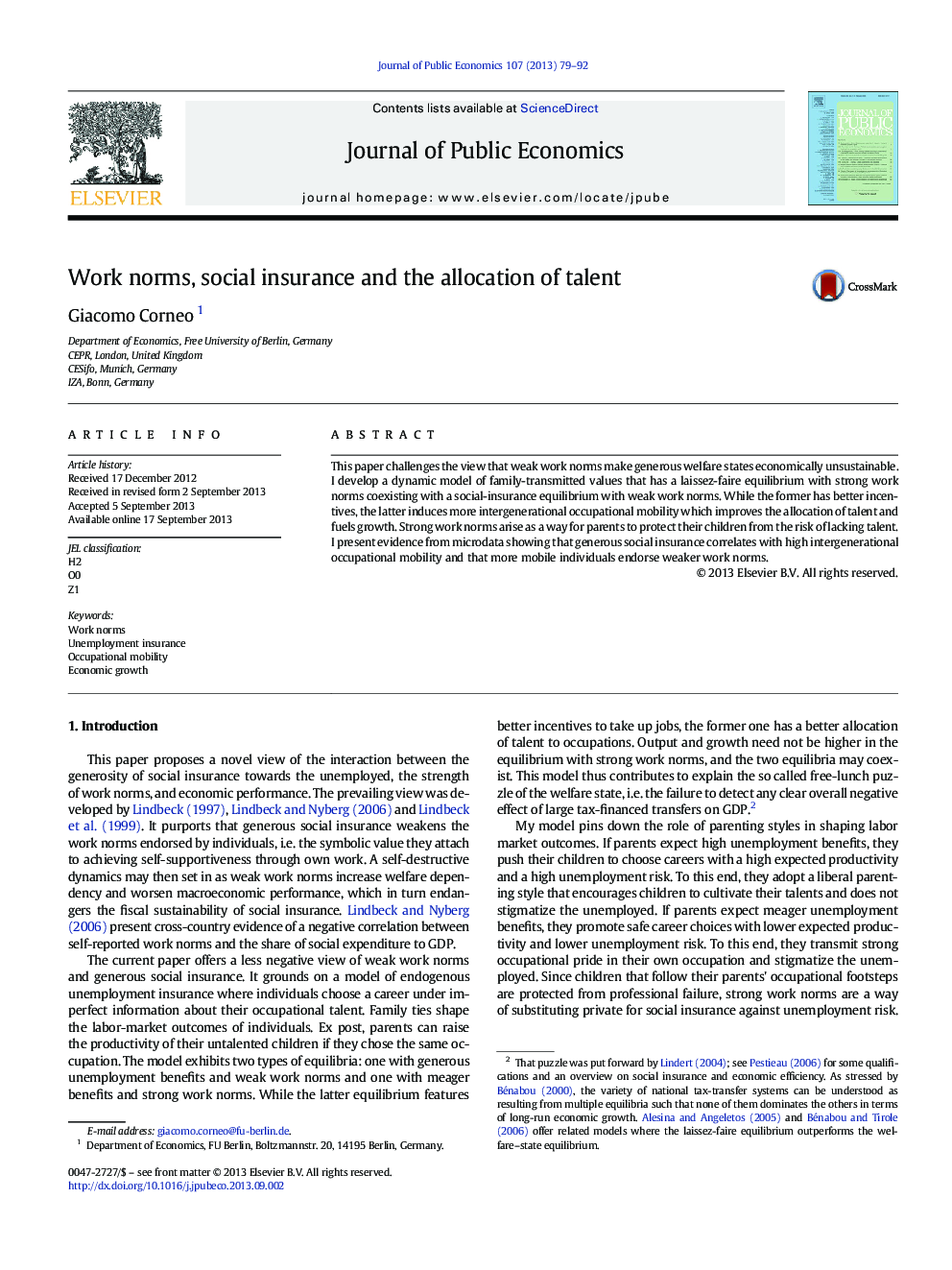| Article ID | Journal | Published Year | Pages | File Type |
|---|---|---|---|---|
| 969706 | Journal of Public Economics | 2013 | 14 Pages |
•Both laissez-faire and a social insurance can arise in equilibrium.•The former has better incentives, the latter a better allocation of talent.•Strong work norms sustain the laissez faire equilibrium.•Evidence from micro-data supports the insights from the model.
This paper challenges the view that weak work norms make generous welfare states economically unsustainable. I develop a dynamic model of family-transmitted values that has a laissez-faire equilibrium with strong work norms coexisting with a social-insurance equilibrium with weak work norms. While the former has better incentives, the latter induces more intergenerational occupational mobility which improves the allocation of talent and fuels growth. Strong work norms arise as a way for parents to protect their children from the risk of lacking talent. I present evidence from microdata showing that generous social insurance correlates with high intergenerational occupational mobility and that more mobile individuals endorse weaker work norms.
